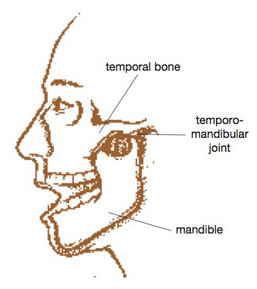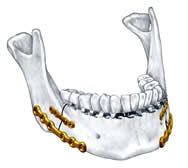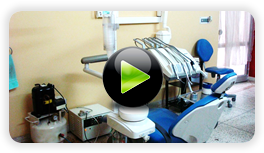If you’ve been in an accident or have been injured, you could suffer a jaw fracture. We are specially trained to respond to injuries such as a broken jaw. If you think you have a jaw fracture, it’s very important to see a qualified specialist for diagnosis and treatment.
What is a Jaw Fracture?
 A jaw fracture is similar to any other broken bone. A fracture occurs when there is forceful or blunt injury to the jaw bone, breaking the bone into two or more pieces. A broken jaw is often treatable without surgery, but must be treated to avoid potentially serious complications such as infection.
A jaw fracture is similar to any other broken bone. A fracture occurs when there is forceful or blunt injury to the jaw bone, breaking the bone into two or more pieces. A broken jaw is often treatable without surgery, but must be treated to avoid potentially serious complications such as infection.
Symptoms of a Jaw Fracture
- Pain
- Swelling
- Inability to open or close the jaws properly
- Sections of teeth that move independently of the rest of the jaw
- Sudden misalignment of the teeth, a drastic change in the "bite".
- Decreased or loss of the ability to chew
Repairing a Broken Jaw
 All jaw fractures require some form of treatment. Many jaw fractures can require "setting" and surgery. If the fracture has caused no misalignment of the teeth or bones, stabilization of the fracture may be prescribed using interdental fixation to keep the jaw bones stable during healing.
All jaw fractures require some form of treatment. Many jaw fractures can require "setting" and surgery. If the fracture has caused no misalignment of the teeth or bones, stabilization of the fracture may be prescribed using interdental fixation to keep the jaw bones stable during healing.
Some fractures require a surgical approach and an internal method of stabilization. We will be able to determine the best course of treatment for you by examining your x-rays and CT scans (if required).
Other facial bones can also suffer a fracture as a result of an injury. A complete examination and x-rays should be taken after a head or facial injury. If you have suffered a head or facial injury, the best first step is to go to an emergency room for evaluation.



